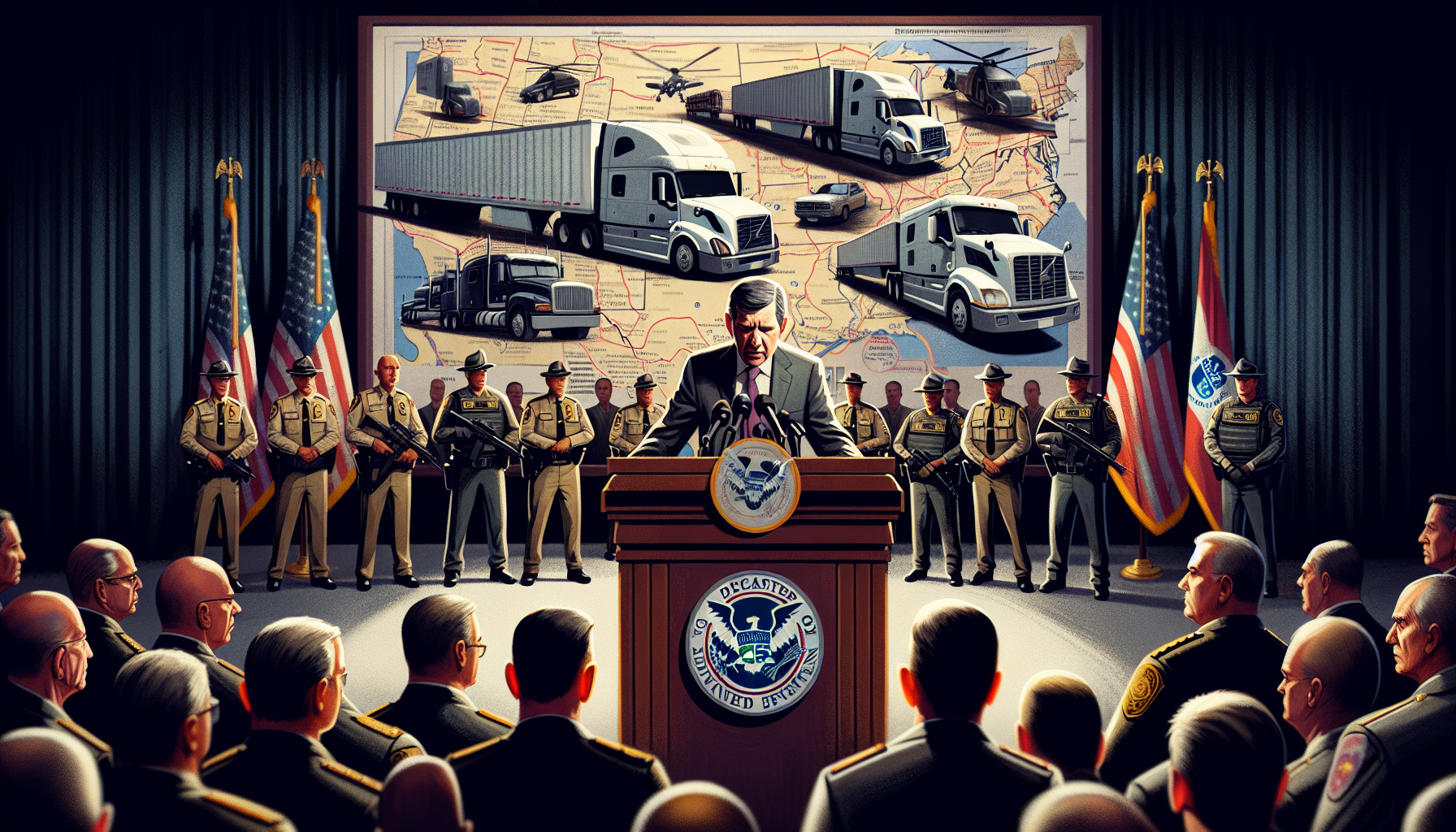Acting ICE Director Todd Lyons on Thursday warned that undocumented immigrants driving commercial trucks could pose security risks, a message delivered as federal and state officers announced 223 arrests — including 146 truck drivers — on northwest Indiana highways.
Acting Immigration and Customs Enforcement Director Todd Lyons warned on Thursday that undocumented immigrants operating heavy trucks may present public‑safety and national‑security risks. Speaking as authorities outlined a multiweek enforcement push on Indiana highways, Lyons said some drivers arrested held commercial licenses from states with so‑called sanctuary policies. He added that officials “don’t know what [some trucks] are carrying,” invoking the possibility of malicious cargo. The specific phrasing was reported by the Daily Wire after Lyons’ appearance.
Indiana arrests and licenses
- At a press event in Gary, officials said 223 people suspected of being in the U.S. unlawfully were arrested in recent weeks on Indiana roadways as part of ICE’s Operation Midway Blitz with the Indiana State Police. Of those, 146 were truck drivers, and more than 40 had commercial driver’s licenses issued by Illinois, California, or New York, according to local outlets that covered the announcement.
Context and politics
- Lyons linked the risk to federal border policies, asserting that recent years have seen large numbers of migrants enter the country. That characterization reflects his view; government encounter totals and the effectiveness of vetting remain the subject of ongoing political dispute.
Recent crashes that intensified scrutiny
- Florida: In an August crash on Florida’s Turnpike, authorities say truck driver Harjinder Singh attempted an illegal U‑turn, causing a collision that killed three people. The Florida Department of Highway Safety and Motor Vehicles said Singh entered the U.S. illegally in 2018 and later obtained a California commercial driver’s license. Dashcam video circulated widely; Singh faces three counts of vehicular homicide, and federal officials have lodged an immigration detainer.
- California (Ontario): In a separate October pileup on the 10 Freeway in Ontario, Calif., authorities charged 21‑year‑old Jashanpreet Singh with vehicular manslaughter with gross negligence and DUI causing injury. The case killed Pomona High assistant basketball coach Clarence Nelson and his wife, Lisa; a third victim also died. DHS issued an immigration detainer, and state records indicated the driver had a valid commercial license; California officials argued CDL eligibility is governed by federal criteria.
- California (Adelanto): In a June 20, 2024 crash near Adelanto, Calif., a big‑rig driven by Partap Singh triggered a multi‑vehicle wreck that critically injured 5‑year‑old Dalilah Coleman. A DHS statement says she spent three weeks in a coma, underwent a craniectomy, and now requires long‑term therapy. Her father, Marcus Coleman, has publicly pressed for accountability; in an interview with the Daily Wire, he criticized Gov. Gavin Newsom for California’s licensing policies.
Federal policy moves on licensing
- The Trump administration this year announced tighter federal rules and enforcement around commercial driver licensing for non‑citizens and English‑proficiency requirements. The White House and the U.S. Department of Transportation detailed steps to audit non‑domiciled CDL issuance, reinstate out‑of‑service criteria for inadequate English skills, and condition some federal safety funds on state compliance. Reuters and the Associated Press have reported on funding penalties and new limits narrowing which non‑citizens may qualify for CDLs.
What’s next
- ICE says it will continue highway enforcement with state partners in the Midwest and elsewhere. Civil‑liberties groups and some state officials have questioned aspects of these operations and the federal pressure campaign on state licensing, signaling that the legal and policy fight over CDLs — and who can hold them — is likely to continue.

